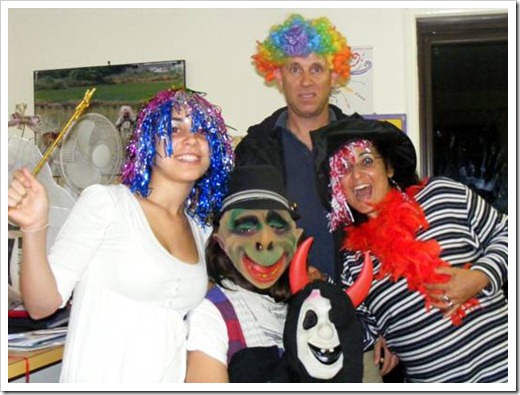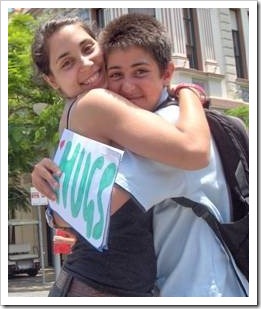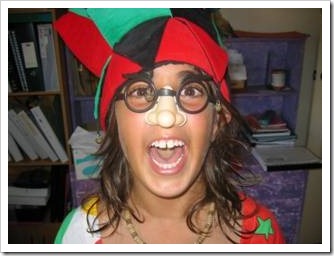
All parents dream of having polite kids with good manners. Some of the desire for manners is rooted in an old discipline of obedience that was part of every family structure in the past.
I have challenged this quest for good manners for many years. When I was a child, I was very rebellious and hated anything associated with manners. I believe I did that because my parents and my teachers used manners as a way to control their children and students, instead of explaining what manners meant and how we would benefit from using them.
I know many parents who still use external motivation today, repeatedly telling their kids to say “please” and “thank you” without helping them develop their own understanding and motivation. But I believe that when children know what it means to have manners and how they benefit from them, they are polite and show excellent manners naturally and effortlessly.
Kids can tell when they do something to please their parents and when they do it because they want to. After my kids have a sleepover or a party, many of their friends’ parents ask them, “What do you say to Mrs. Baras?” and the child is embarrassed and mumbles, “Thank you for having me”. This is a typical example of how parents confuse following orders (“You do what I tell you to do just because I told you to do it and I am God almighty and you’d better listen to me or else…”) with a lesson that equips children with rules of behavior that will make their life successful and happy.

Manners are just social codes of behavior that people have discovered over time that show you can read and follow social cues. Children who learn to demonstrate the manners in the environment they live in do not stick out as rude and are considered respectful and with good social skills. I agree that not all those rules make 100% sense, but I bet they made real sense when they were created. Therefore, there are natural incentives for children to be polite and all we need to do as parents is point them out.
- Manners are the social rules of your environment. In every society, a person with good manners is considered polite, respectful, grateful and friendly. It is your responsibility as a parent to teach your kids the social cues. While you do this, you can still filter out behaviors that contradict your values, such as covering for a friend who has done something dangerous or lying not to offend.
- Every group of people has its own culture and manners. You can take some rules from one culture and try to bring them into another culture. Teach your kids to discover the source of the behavior rules in each culture and develop critical thinking about them. Teach them to ask, “What was the society like when those rules formed? Are they still relevant today? How can we take some aspect from one culture and combine it with the new culture?” It will help them not accept them as “musts” when they are inappropriate and appreciate other codes of that create social benefit.

- Never say anything negative (pink elephant) with “please”, as in “David, please don’t play with your food”. Because the child’s mind converts this into, “David, please play with your food”, this links the magic with things that annoy you and you want to stop.
- Never ever say “please” or “thank you” in anger, as in, “Go to your bed now, thank you”. When you do this, you are abusing the “thank you”, because you are not really grateful and appreciative, you are giving an order and your kids know that. It is the best way to destroy the magic of “please” and “thank you”.
- Be a role model. Use “please” and “thank you” appropriately, even for small things, as in “Can you please pass me the salt” instead of “Pass me the salt”. Manners are habits and if your kids copy your language (and they will), they will have enough polite, respectful, grateful language to use as reference.
- Teach your kids they do not have to say everything on their mind and not to confuse honesty with rudeness. Stick to the rule “If you have nothing good to say, say nothing!” and if you find yourself not saying much because you only have unpleasant things to say, keep looking for something good to say. It is out there, you just have to clean your glasses and see more good around you!
- Teach your kids to say good things about their friends and not to gossip. Tell them it is not good manners to talk badly about others behind their back. If you talk about others, say positive things about them and mean what you say. This may be one of the most important social rules you can teach your children. Set an example!

- Do not open birthday presents in front of your guests, because this will make them compare presents, it will likely start a competition and those who have brought a simple present might feel ashamed. Remember, it is not the price of the present that counts but the thought and the attention, yet most kids do not get a chance to buy presents anyway. It is their parents who buy and not everyone can afford big gifts. Do not shame anyone by opening gifts in front of everyone. If someone asks you to open their gift, do it on the side so only the two of you can see it or say, “We never open presents until after the party”.
As you can see, manners are a huge topic and a big part of our social skills. The most important thing in teaching manners is to make sure your children understand how they can benefit from them. My kids’ teachers always say they are very helpful students, because they offer to help, they say please and thank you and they never talk badly about other kids. When your children are young, you can explain some of the reasons and create opportunities for them to see how much they benefit from their manners. To support my manners commandments, I use every opportunity to tell my kids how well my manners have worked for me and how badly things have turned out when I did not use them.
Happy parenting,
Ronit
This post is part of the series Ronit's Parenting Bible:
- Ronit’s Parenting Bible: Who’s in Charge?
- Ronit’s Parenting Bible: Love
- Ronit’s Parenting Bible: Food
- Ronit’s Parenting Bible: Babies
- Ronit’s Parenting Bible: Change
- Ronit’s Parenting Bible: Role Model
- Ronit’s Parenting Bible: Manners
- Ronit’s Parenting Bible: Gender
- Ronit’s Parenting Bible: School
- Ronit’s Parenting Bible: Money













